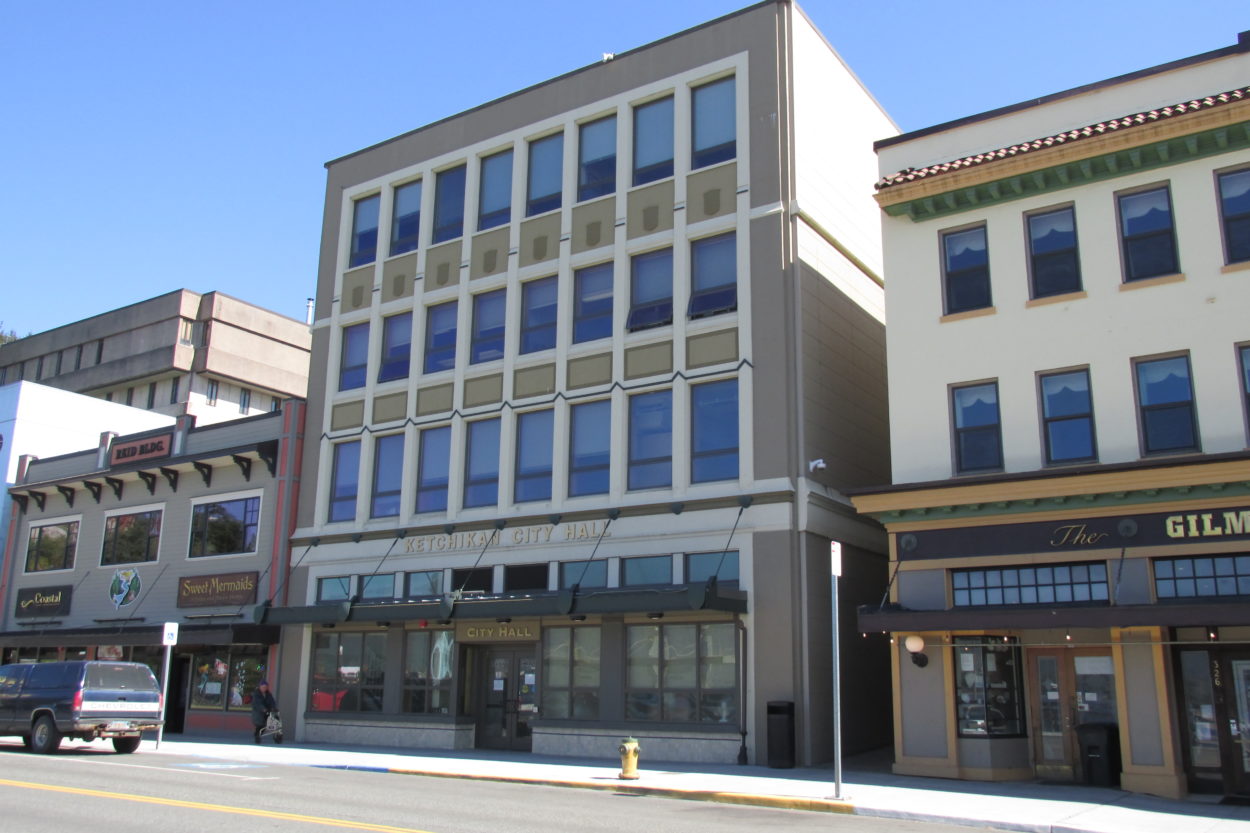
Ketchikan’s city hall on June 11, 2020 (KRBD file photo by Maria Dudzak)
Ketchikan’s City Council is set to discuss a wide range of issues in a four-hour planning session Saturday afternoon.
Among the eight topics for the work session-style meeting are opioid addiction, a long-term strategic plan for the city and a reform of the city’s sales tax cap.
As it stands, only the first $2,000 of most transactions is subject to the city and borough’s combined 6.5% sales tax. In a memo attached to the agenda, Council Member Lallette Kistler proposes raising that cap to $10,000 and adjusting it for inflation, along with lowering taxes on groceries and rent for houses and apartments by an unspecified amount. Residential rents are currently subject to a $1,000 sales tax cap, so the maximum tax on rent is $65 per transaction.
Kistler says the current sales tax cap means working-class residents end up paying more of their income in taxes than high earners.
“It doesn’t seem fair to the resident who is barely getting by that they must pay sales tax on 100% of what they spend, and those with more get a break,” Kistler writes.
No formal action is proposed for the meeting — Ketchikan’s city clerk, Kim Stanker, says it’s meant as an opportunity for the council to gather information and plan for future initiatives.
Council Member Janalee Gage suggested the council tackle affordable housing and homelessness during the session. She says high rents and low inventory mean seniors, people with disabilities and low-income residents are often unable to stay in their homes or find new places to live.
“What we need to realize is that we need to move quickly, and at this point, we needed to move 3 years ago towards more affordable housing,” Gage writes.
Other areas of focus for the session include the future of the city-owned downtown cruise ship port’s Berth 3, hiring a tourism manager to guide the growth of the visitor industry in town, term limits for the mayor and council and local nonprofit funding.
The meeting is scheduled for 2 p.m. Saturday. There’s time set aside for public comment at the beginning of the meeting. It’s broadcast live on local cable channels and live-streamed at the city’s website.





